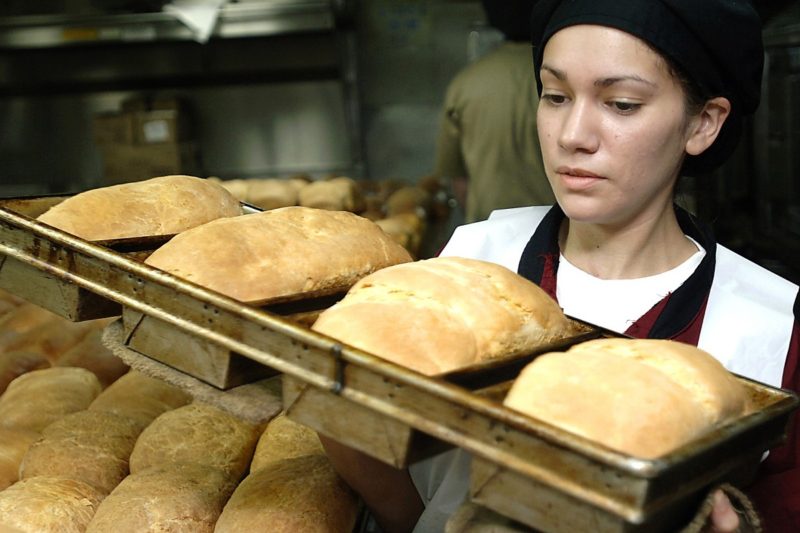What’s the place of work in God’s economy?
Thailand’s economy has experienced a remarkable transformation over the last four decades, “Poverty has declined substantially over the last 30 years,” the World Bank reports, “from 67% in 1986 to 7.2% in 2015 during periods of high growth and rising agricultural prices.”
Yet for most of its history Thailand was locked in poverty. Why did it take Thailand so long to develop? Three cultural values have kept the Thai people from exercising their God-given ability to improve their lives. I call them “the three S’s”: sanuk (fun), saduak (convenience) and sabai (comfort). But abundance comes from diligence and discipline.
Thai people from exercising their God-given ability to improve their lives. I call them “the three S’s”: sanuk (fun), saduak (convenience) and sabai (comfort). But abundance comes from diligence and discipline.
John Wesley (1703–1791), English revivalist and social reformer, distilled the as-yet undiscovered Protestant work ethic into a rallying cry: “Work as hard as you can; save as much as you can; give as much as you can!”
Let’s consider the place of diligence, thrift and charity in the life of the Christian.
Diligence: “Work as hard as you can”
Every legitimate vocation is sourced in God’s work. Human beings, made in God’s image, are called to be coworkers with the God.
We live and work in the divine economy. Our work receives significance as we fulfill God’s calling and do God’s work. Christians are to partner with God in the task of reconciling the lost creation and destroying the works of the enemy.
Secular societies have strayed from this ideal. Imago dei humans have been reduced to consumers and producers. Work is no longer seen as a sacred task, but simply a means to an end. The noble idea of calling has been replaced with the anemic concept of career.
The divine economy make no dichotomy between sacred and secular; we all serve in the presence of God. A wall plaque adorns some kitchens, “Worship services held here three times a day.” The issue is not sacred versus secular but consecrated versus unconsecrated. A pastor may do religious work irrevently, and a homemaker may prepare meals in true devotion to God.
The development ethic requires more than the bare minimum for today. Our goal transcends a survival mentality and encompasses helping the needy in our communities, saving and investing for the future.
In a kingdom economy, diligence is a virtue, in contrast to the sloth, laziness, and idleness of some animistic cultures. The work-rest cycle  that we find in the First Worker (Gen. 2:2–3) also contrasts with the addiction to work found in many materialistic societies.
that we find in the First Worker (Gen. 2:2–3) also contrasts with the addiction to work found in many materialistic societies.
Beyond abundance, work brings glory to the Master Worker, fulfilling his purposes and advancing his kingdom. True wealth is internal, in knowing God. The external sign of this internal abundance is a simple lifestyle. The wealth emanating from a life that is both frugal and faithful to one’s calling results in savings.
Thrift: “Save as Much as You Can”
Wise people save. “The wise store up choice food and olive oil, but fools gulp theirs down” (Prov. 21:20).
A secure future demands delayed gratification and sacrifice. Those who live only for today may be poor tomorrow: “Eat, drink, and be merry, and tomorrow we will be poor.” Think of all the lottery winners who squandered sudden wealth through reckless spending.
Saving is necessary because we have multiple responsibilities: providing for our own needs (2 Thess. 3:10), our families (1 Tim. 5:7–8), and our communities, our churches, and societies (Gal. 6:9–10).
Thrift sets limits to personal consumption, but not to creating and giving wealth. These are virtues; excessive consumption is a vice. The focus of biblical economics is not on self but on God, others, and the creation.
In a theistic system, wealth comes from hard work and frugality. Today’s culture values material wealth rather than God. Wealth has become an end in itself. Wesley saw it coming. “I fear that wherever riches have increased, the essence of religion has decreased in the same proportion. Therefore, I do not see how it is possible, in the nature of things, for any revival of true religion to continue long. For religion must of necessity produce industry and frugality, and these cannot but produce riches. But as riches increase, so will pride, anger, and love of the world in all its branches.”
As Christians, our goal should not be material excess but rather adequacy. God blesses many people with abundance, that they may share it with neighbors and the community. That this suggestion seems strange shows just how far down the secular road we have traveled. As Jesus said, you cannot serve both God and money.
Charity: “Give as Much as You Can”
The Bible gives us two motives for giving. The first is God’s love; we give because God first loved us (1 John 4:10–11). A second is “self-interest.” But is it biblical to act in one’s self-interest?
Yes! Jesus said “love your neighbor as yourself” (Mark 12:31). This assumes a healthy level of self-interest. We are made in the image of God; our lives have significance.
Yet self-interest is set in community. Despite what the culture may say, we are not isolated individuals; we live among others and must consider their needs. God designed us to contribute to the larger community. Jesus himself articulated this fundamental principle: “It is more blessed to give than to receive” (Acts 20:35).
Yet we must not give indiscriminately. In recent years, the language we use about giving has devolved. The word poor has come to represent a class of people lacking in physical resources. But if we are to truly help someone in need, we have to find out how they came to be in need. The  apostle Paul made distinctions (1 Tim. 5:3–6), and so should we.
apostle Paul made distinctions (1 Tim. 5:3–6), and so should we.
For our purposes, the poor can be divided into three broad classes. First, the deserving poor, the widows and the orphans, who would work if they were able. These deserve our giving.
A second group is the working poor, those who who could work and want to work. What they need is opportunity. They may be provided a job or a loan to start a business.
A third group, the undeserving poor, are those able but unwilling to work. To give to the undeserving poor only increases their poverty. To fail to challenge them is to condemn them in their poverty.
Work is sacred. It is also indispensable if peoples and communities are to flourish. The Protestant ethic is the key to individuals, communities, and nations being lifted out of poverty.
– Darrow Miller
This DM&F Classic blog post is excerpted from the book Discipling Nations. For the entire text go here.






